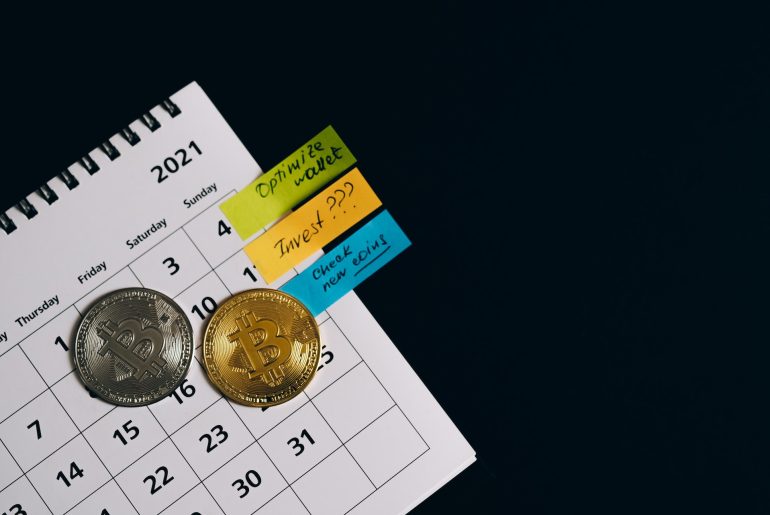This article may contain references to products or services from one or more of our advertisers or partners. We may receive compensation when you click on links to those products or services. Nonetheless, our opinions are our own.
The biggest challenge facing the crypto industry today is how to store users’ assets. Anyone who has ever lost $1,000 worth of cryptocurrency knows that the way you store your coins is going to have an enormous impact on their security.
If you want complete control over how and where your crypto assets are stored, then it’s important to understand how multiparty computation works through multiple parties with different levels of trust:
Multiparty computation (MPC) allows multiple parties to compute functions without revealing any one party’s roles. The model allows you to share information with multiple parties, in order to create trust between them and protect data from being accessed by malicious parties. It is a powerful tool for securing wallets, crypto assets, and other sensitive data within blockchains.
Your crypto assets are only as safe as your storage methods
There are many ways to store your cryptocurrency securely, but they all have their own pros and cons. For example, you can keep your private keys on a physical device like a USB stick or paper wallet in a secure location.
Alternatively, you could use an online wallet service to manage them for you — but this method introduces additional risk as there’s no way of knowing who has access to the servers storing them (or if those servers will be compromised).
The most important thing if you are looking to keep your assets secure in one of the best Android crypto wallet devices is to make thorough research and see whether it has good reviews.
Anyway, here are some facts about multiparty computation:
1. Multiparty computation can bring financial services to the unbanked
This is especially true for developing nations, where many individuals lack access to banking services due to a lack of infrastructure, or because they have no need to open an account.
These people may still need access to financial tools and services — to pay their bills, receive payments, manage their investments. But they do not have the means needed to open a bank account or otherwise use traditional banking services.
Multiparty computation offers a path forward here: it could make it possible for unbanked people in developing countries to transact with each other securely using cryptocurrency wallets on mobile phones (which are more readily available than smartphones).
2. The more parties involved, the better protection you’ll enjoy
As with any system, the more parties involved, the better protection you’ll enjoy. This is true for both security and privacy. For example, if two people are making an online transaction together, they can send each other messages to prove that they are who they say they are before any money changes hands.
But if three or four people were involved instead of just two? That’s even better.
You might also see a larger number of parties as being more efficient than fewer. This is because having ten parties may be preferable over five because it allows for an even smoother experience when processing transactions.
3. Carefully consider your approach to multiparty computation
As you can see, multiparty computation has its pros and cons. On one hand, it offers a powerful way of securing your wallet. However, it comes with some significant costs that you need to consider before deciding whether or not to use it:
The more parties involved in your system and the more complex their arrangement is, the harder it will be for an attacker to break into it. This means that if someone does manage to gain access to one party’s device or data (which is certainly possible), they still won’t be able to get all of the information needed from other parties in order to steal funds from your wallet.
The cost of setting up such systems varies widely depending on how many people are involved: If you want secure protection but don’t want any extra features like multi-signature functionality then two or three participants might suffice.
However, if you add those features then perhaps four or five would be needed instead depending on how complicated they are compared with standard single signature transactions. Going forward, you need to be able to demonstrate that no single party has access to a user’s keys.
You might be surprised to learn that there are many companies out there that store your crypto assets, and they don’t offer any kind of protection against malicious actors. In fact, many of them don’t even have a backup plan in place if their servers go down or get hacked. Your funds could disappear overnight.
Conclusion
As we’ve seen, multiparty computation offers a powerful tool for safeguarding crypto assets. By removing the need for centralized control over private keys, MPC can provide security that’s more robust than ever before.

Reviewed and edited by Albert Fang.
See a typo or want to suggest an edit/revision to the content? Use the contact us form to provide feedback.
At FangWallet, we value editorial integrity and open collaboration in curating quality content for readers to enjoy. Much appreciated for the assist.
Did you like our article and find it insightful? We encourage sharing the article link with family and friends to benefit as well - better yet, sharing on social media. Thank you for the support! 🍉
Article Title: How Multiparty Computation Can Increase Security for Crypto Wallets
https://fangwallet.com/2023/01/26/how-multiparty-computation-can-increase-security-for-crypto-wallets/The FangWallet Promise
FangWallet is an editorially independent resource - founded on breaking down challenging financial concepts for anyone to understand since 2014. While we adhere to editorial integrity, note that this post may contain references to products from our partners.
The FangWallet promise is always to have your best interest in mind and be transparent and honest about the financial picture.
Become an Insider

Subscribe to get a free daily budget planner printable to help get your money on track!
Make passive money the right way. No spam.
Editorial Disclaimer: The editorial content on this page is not provided by any of the companies mentioned. The opinions expressed here are the author's alone.
The content of this website is for informational purposes only and does not represent investment advice, or an offer or solicitation to buy or sell any security, investment, or product. Investors are encouraged to do their own due diligence, and, if necessary, consult professional advising before making any investment decisions. Investing involves a high degree of risk, and financial losses may occur including the potential loss of principal.
Source Citation References:
+ Inspo











































